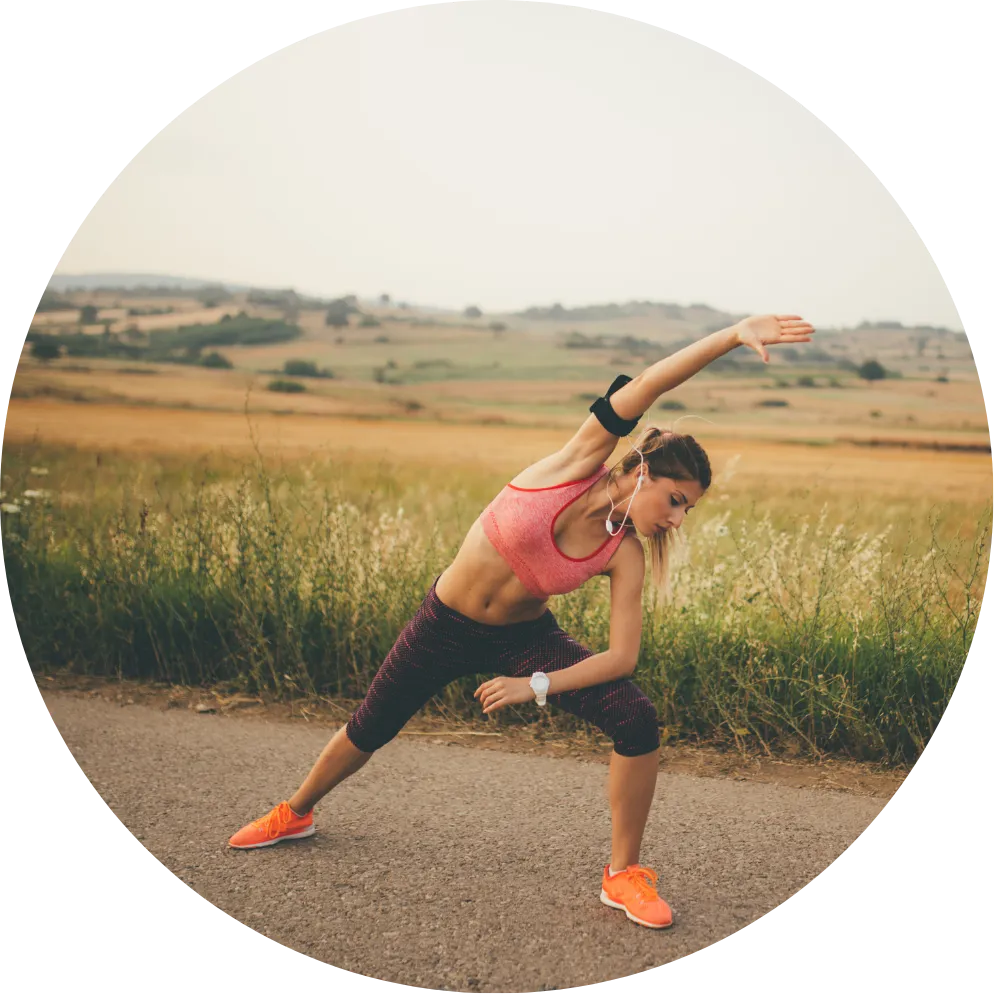What is a Multidisciplinary Rehab Therapy
Team?
What is a
Multidisciplinary Rehab Therapy
Team?
MULTIDISCIPLINARY IS
HAVING ALL THE EXPERTS ON THE SAME TEAM
Our team is led by Ministry Of Health registered senior allied health professionals of a variety of specialisations and complementary clinicians in an integrative way of case management
Occupational Therapy
Physiotherapy
Speech & Language Therapy
Hand Therapy
Progressive TCM & Acupuncture
Massage Therapy
Stretch Therapy
Dietetic Therapy
MULTIDISCIPLINARY IS
HAVING ALL THE EXPERTS
ON THE SAME TEAM
Our team is led by Ministry Of Health registered senior allied health professionals of a variety of specialisations and complementary clinicians in an integrative way of case management
Occupational Therapy
Physiotherapy
Speech & Language Therapy
Hand Therapy
Progressive TCM & Acupuncture
Massage Therapy
Stretch Therapy
Dietetic Therapy
Truly Holistic
Integrative Therapy

Medical Multi-Disciplinary Teams (MDTs) refers to a team of clinicians of different specialisations working together to develop and deliver an optimal healthcare plan as a concerted unit.
In the era of healthcare delivery reform, MDT-based care delivery is the gold standard strategy to enhancing care quality, improving patient experience and heightened personal safety – this is double win for both the clients and practitioners.
Rehab From Head To Toe

With all the specialisations in our team, we can indeed work on most issues you face that resulted in a loss of function.
From the brain, we specialises in neuro rehab - stroke, brain or spinal cord injuries; cognition - managing dementia and short term memory loss; fractures, disorders, diseases - our therapists have seen it all.
This is why a MDT is needed. We can jump in and deal with the most complex cases any day.
What We Do

List Of Specialisations
Stroke
Brain Injuries
Spinal Cord Injuries
Cerebral Palsy
Motor Neuron Disease,
Multiple Sclerosis
Bone Injuries
Cancers
Cognitive Decline or Disorders
Dementia
Parkinson’s Disease
Diabetes
Cardiovascular Diseases
Loss Of Vision
Speech and Swallowing Issues
Arthritis
Amputations
Burns
Chronic Obstructive Pulmonary Disease
Chronic Kidney Disease
Chronic Limb Ischaemia
Lymphedema
Palliative
Medical Situations
ADLs (Activities of Daily Living) Retraining
Unhealthy Lifestyle and Habits
Weight Gain or Loss
Ergonomic Injuries
Sprains and Strains
Pre-Surgery and Post-Surgery
Complementary Services
Home Modifications
Comprehensive Caregivers Training
Equipment Review
Prescription and Training
Allied Health Medico Legal Consultations
Personal Assistive Transportation
Personal Rehab Technologies
Advanced Robotics

Truly
Holistic
Integrative
Therapy
As we speak, the concept of adopting a multidisciplinary approach towards providing care in hospital settings as well as within the community has been growing. One might raise the question – why is there an urgent need for the healthcare system to implement such an approach?
Medical Multi-Disciplinary Teams (MDTs) refers to a team of clinicians of different specialisations working together to develop and deliver an optimal healthcare plan as a concerted unit.
In the era of healthcare delivery reform, MDT-based care delivery is the gold standard strategy to enhancing care quality, improving patient experience and heightened personal safety – this is double win for both the clients and practitioners.
Rehab From Head To Toe

People is usually unfamiliar with rehab therapy, even though it is as important as what the doctors do.
So we usually tell them, we can work with most issues from head to toe, as long as there is a formal diagnosis.
With all the specialisations in our team, we can indeed work on most issues you face that resulted in a loss of function.
From the brain, we specialises in neuro rehab - stroke, brain or spinal cord injuries; cognition - managing dementia and short term memory loss; fractures, disorders, diseases - our therapists have seen it all.
This is why a MDT is needed. We can jump in and deal with the most complex cases any day.

Medical Conditions We Work On
List Of Specialisations
Stroke
Brain Injuries
Spinal Cord Injuries
Cerebral Palsy
Motor Neuron Disease,
Multiple Sclerosis
Bone Injuries
Cancers
Cognitive Decline or Disorders
Dementia
Parkinson’s Disease
Diabetes
Cardiovascular Diseases
Loss Of Vision
Speech and Swallowing Issues
Arthritis
Amputations
Burns
Chronic Obstructive Pulmonary Disease
Chronic Kidney Disease
Chronic Limb Ischaemia
Lymphedema
Palliative
Medical Situations
ADLs (Activities of Daily Living) Retraining
Unhealthy Lifestyle and Habits
Weight Gain or Loss
Ergonomic Injuries
Sprains and Strains
Pre-Surgery and Post-Surgery
Complementary Services
Home Modifications
Comprehensive Caregivers Training
Equipment Review
Prescription and Training
Allied Health Medico Legal Consultations
Personal Assistive Transportation
Personal Rehab Technologies
Advanced Robotics
Frequently Asked Questions
Who are the founders of the company and what is the founding story?
Lifeweavers was founded in 2017 by two occupational therapists from UK and a business strategist who saw gaps in the healthcare system with people discharging from the acute setting ie the hospitals. Liz Piper, the clinical director and Norm Ng, the business director continued to grow the occupational therapy company into a multi-disciplinary practice with a variety of clinicians to work on increasingly complex medical cases, including a highly focused stroke rehab team.
By 2019, the test that was to come during the Covid outbreaks proved that Lifeweavers continues to be an essential service to clients in the community when many stopped going to public institutions to get their regular therapy services. Our team filled the void for these folks requiring regular, continuous therapy through the pandemic with strict protocols in place.
After the lockdowns were lifted, we saw gaps in the community again with seniors becoming overtly sedentary from reduced access to social events. Lifeweavers introduced "Futureproof" a senior focused exercise therapy program at home to specifically address this issue. At the same time, this is when the company realised the need to shift from a reactive based rehab model to a more proactive one.
From then on, Lifeweavers started to introduce prophylactic or preventive rehab with a new initiative "Best Version Of Ourselves" to promote the fuller understanding of one's health via the lens of the allied health led bio-psycho-social model of health.
This has expanded into the design of Total Wellness For Whole Family and Corporate Pro-Wellness programs today to reach a bigger population with the message of prevention.
Why are you are private company and not part of the public services?
We are founded with unique insights from the perspective of a private care provider and remained so to keep us away from systemic issues of the institutions.
At Lifeweavers, we don’t believe in a one-size-fits-all approach to rehabilitation therapy. That’s what makes us stand out. While larger institutions often rely on standardised protocols, we go deeper, designing every therapy plan to suit the individual. Why? Because personalisation isn’t just a buzzword—it’s the cornerstone of effective rehabilitation.
Research published in the Journal of Physiotherapy Practice (2023) highlights that personalised therapy plans can improve recovery outcomes by up to 30% compared to standardised treatments. Our progressive outlook means we stay ahead of the curve. Take advanced robotics, for example. We’ve integrated much needed tools like hoists which were often underused in the institutions for safer manual handling and our use of robotics to enhance rehab and not to merely solve the manpower crunch and which act as extensions of our human therapists are a few examples how we do it differently.
What also sets us apart is how we think about the future. Rehabilitation isn’t static—it evolves as lifestyles, health challenges, and client needs change. At Lifeweavers, we’re constantly innovating to meet these shifts head-on. Whether it’s refining our multidisciplinary approach or collaborating with leading experts, we ensure our methods are not only relevant today but also future-proof. A report by the Global Health Innovation Index (2023) stresses the importance of adaptable care models in preparing for an ageing population and increasing rates of chronic conditions.
This commitment to personalisation, progressiveness, and forward-thinking care isn’t something you’ll find everywhere. It’s what makes us more than a rehab provider - it lets us keep the promise of a gold standard partner in our clients' journey in rehab.
What is Allied Health?
The term allied health refers to a group of healthcare professionals who are neither doctors, nurses, nor dentists but play a critical role in supporting the health and well-being of individuals. It’s a broad and somewhat fluid category, covering specialists like physiotherapists, dietitians, pharmacists, radiographers, occupational therapists, and more. These are the professionals often working behind the scenes - or alongside primary clinicians - to provide vital services, whether it’s helping someone recover from a stroke, designing a nutrition plan, or interpreting diagnostic imaging.
The origins of the term can be traced back to the mid-20th century, as healthcare systems became more complex. Medicine was advancing rapidly, and the demands on healthcare providers expanded beyond what doctors and nurses alone could manage. To address these new challenges, specialised roles were developed to focus on specific aspects of care, from rehabilitation to diagnostics. The phrase allied health came into use to describe this collection of professions that “allied” themselves with medicine to provide comprehensive care. It gained official recognition in the United States in 1966, with the Allied Health Professions Personnel Training Act, which was aimed at addressing shortages in this growing sector.
Today, allied health has grown far beyond its early roots. In modern healthcare, these professionals are indispensable, particularly as we face new challenges like ageing populations and the rising prevalence of chronic diseases. For example, physiotherapists and occupational therapists are essential in helping individuals recover mobility and independence after illness or injury. Meanwhile, dietitians are taking on greater importance as we understand more about the role of nutrition in managing conditions like diabetes and cardiovascular disease. These roles don’t just treat illness—they help prevent it, keeping people healthier for longer and easing the strain on overburdened health systems.
The scope of allied health continues to expand as technology advances. In fields like rehabilitation, robotics and digital monitoring tools are now used to augment the skills of therapists, allowing for more precise and effective treatments. This technological integration underscores the forward-thinking nature of allied health professionals, who are often at the cutting edge of applying new techniques and tools to patient care.
Globally, allied health is recognised as a cornerstone of modern healthcare. In the UK, these roles are regulated under the Health and Care Professions Council, ensuring high standards of practice. In countries like Singapore and Australia, allied health professionals are integral to multidisciplinary care teams, working collaboratively to deliver holistic care. They often address the gaps that exist between clinical intervention and the everyday challenges of living with or recovering from a health condition.
At its heart, allied health is about people—about understanding their physical, emotional, and social needs and addressing those in a way that is both specialised and holistic. It’s a field that has grown with the times, evolving to meet the increasingly complex healthcare needs of our world, and one that remains vital to the health of individuals and communities alike.
Why is Lifeweavers multidisciplinary team concept better?
There are clear advantage of having all the clinicians on the same team and additionally, Lifeweavers has refined the medical multidisciplinary team concept further in these ways:
Well defined standard of practice - our team learn collectively from cases we've seen and the the individual experience of each clinician, then set a common standard for the whole team to be aligned to.
Aligned vision and direction - with the chief therapist and case manager driving the case centrally, it takes away fragmentation in the team and help clients define a clear vision of the needs, goals and outcomes expected of their therapy plan. Our team will even interface with your doctors and help translate the medical goals into the therapy plan too.
Better client experience - clients no longer need to figure out the experts they need and coordinate the scheduling, chart progress or have the lack of understanding of the big picture of what everyone is doing. This is especially advantageous for complex cases.
No stones unturned - with a whole team of experts behind you, we are able to look into all areas to make sure nothing has been left out.
Continuous high quality service - having our company manage the team, we can ensure suitably skilled or specialised clinicians are introduced into your team should your needs progresses or changes, or to vet and plan the right clinician to cover sessions if the person attending goes on leave to ensure your therapy plan continues to run optimally.
Forward thinking, wide range of experts upgraded - we have a big team of only senior clinicians in our team to tap on and only with the right aptitude, they are a Lifeweavers clinician. Previous experience are valuable but Lifeweavers ensures the clinicians are on top of their craft to translate their skills into their work with us now. They have a mindset that takes their experiences from the institutions and switched to understand the nuances from a totally different set of challenges when practicing outside of the institutions, in people's homes and in the community.
BOOK A CONSULTATION CALL
Get your medical history ready and drop us a line.

Lifeweavers Therapy Company
© 2025 Lifeweavers Therapy Company Pte Ltd (Singapore) |
All Right Reserved

BOOK A CONSULTATION CALL
Get your medical history ready and drop us a line.

Lifeweavers Therapy Company


